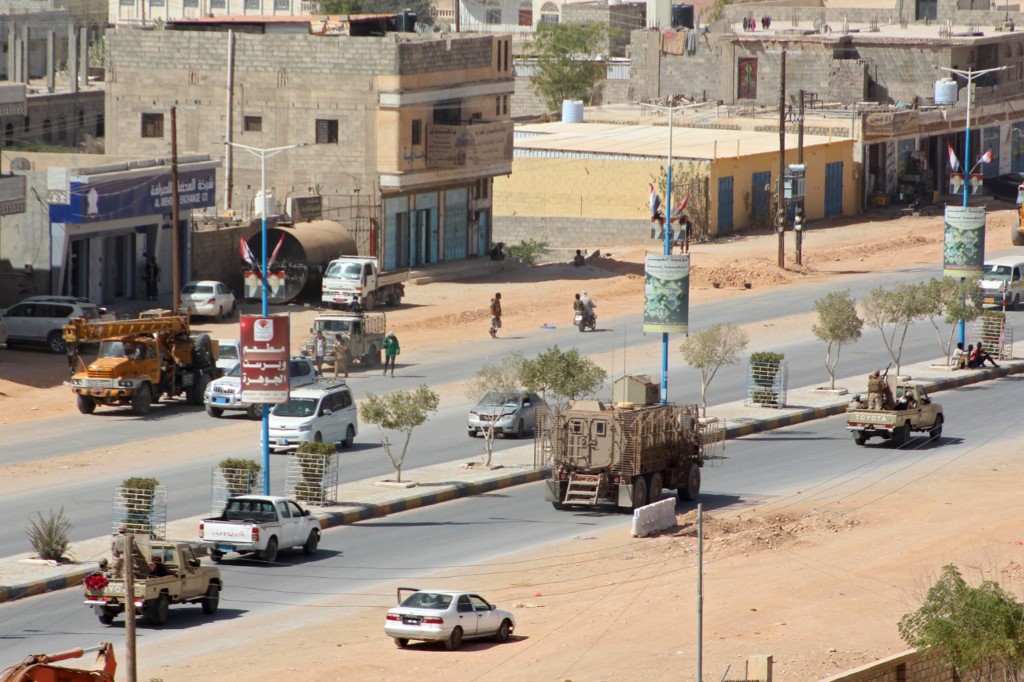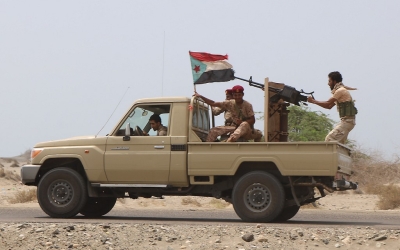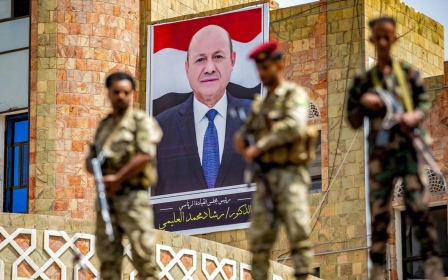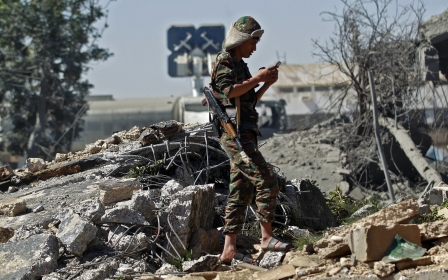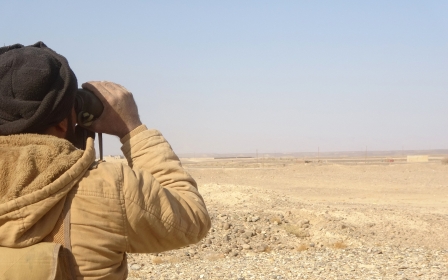Yemen war: Islah's political survival hangs in the balance
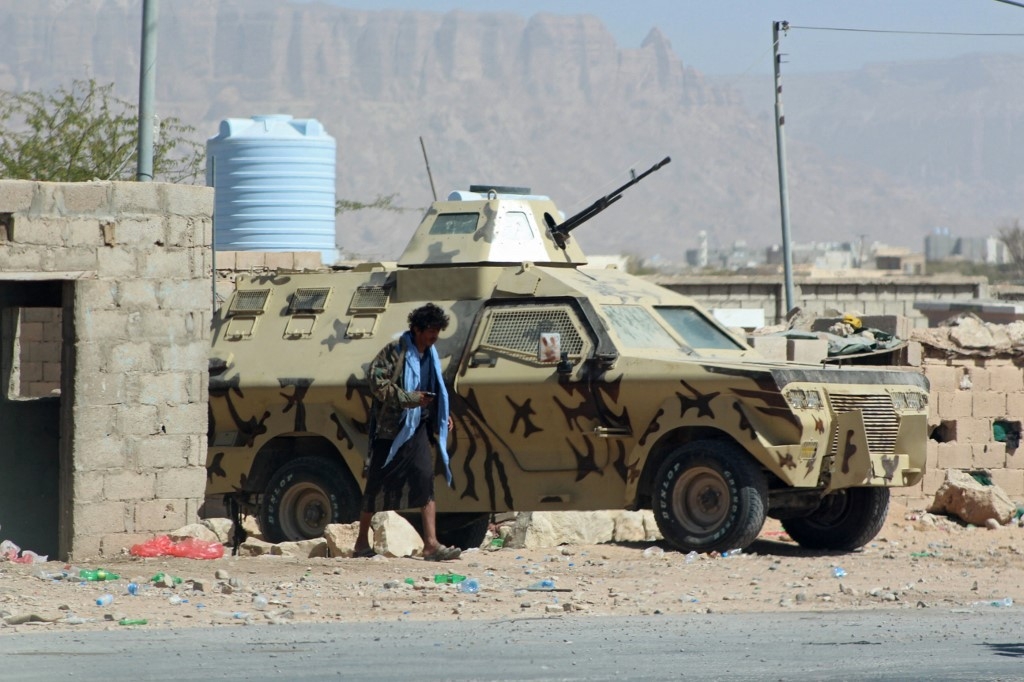
The multifaceted conflict in Yemen is about to claim another victim: the Muslim Brotherhood-affiliated al-Islah party. With the devastating civil war set to enter its eighth year, a rebalancing of political actors is delivering major defeats for Islah, a party that shared power for decades with Yemen’s deposed president, Ali Abdullah Saleh.
The loss of a major centre of gravity in the southern oil-rich province of Shabwah threatens Islah’s political survival, and could mark the most significant shift in the country’s power balance since the war broke out in 2015.
Islah cannot afford another military or political defeat, and any further losses in Shabwah could lead to new clashes in other parts of the country
A highly valued strategic territory, Shabwah was under Islah’s control for years, providing the group with direct access to the Arabian Sea. Its western mountains run along a valuable smuggling route with access to Dhamar and Sanaa, with a path towards the highly coveted Marib province, which houses a key oil refinery. A number of oil facilities operated by international companies are also located in Shabwah.
The conflict in Shabwah between Islah and the Southern Transitional Council is a consequence of a rivalry that extends back to the 1994 civil war. Tensions intensified recently amid the heavy-handed response to civilian protests by Shabwah’s former governor, who is affiliated with Islah. His successor has vowed to bring to justice those accused of crimes against civilians, and has dismissed a number of Islah-affiliated officers.
Amid months of major shifts within Yemen’s political establishment, Islah has suffered defeats across various fronts. Party affiliates in the national army have been accused of abandoning bases to the Houthi rebels and of committing crimes against unarmed civilians. Islah has lost political prominence and key government postings, and has found itself dislodged from its traditional sphere of influence.
New MEE newsletter: Jerusalem Dispatch
Sign up to get the latest insights and analysis on Israel-Palestine, alongside Turkey Unpacked and other MEE newsletters
Territory lost
Islah has lost territory to the Houthis across three northern provinces - al-Jawf, al-Bayda and Marib. In addition, Islah and its allies lost the southern al-Bayda province to the Houthis last year. The removal of Yemen’s vice president, Ali Mohsen al-Ahmar, earlier this year represented another major setback for Islah.
Last autumn, the Houthis made advances in Marib and Shabwah, raising fear of a renewed invasion of the south by the Sanaa-based rebels. Southern politicians and activists accused Islah officials of ordering a withdrawal of troops, allowing the Houthis to march unobstructed into Bayhan. Houthi control over this region would intensify threats to southerners and to neighbouring Gulf states.
The dismissal last year of Shabwah governor Mohammed Bin Adyo, which came in accordance with the 2019 Riyadh Agreement, ushered in a major shift in the balance of power. Islah was weakened politically under the agreement brokered by Saudi Arabia. Bin Adyo’s replacement, Awadh bin al-Wazir al-Awlaqi, has empowered southern elements, as the new governor has rallied local tribes against the Houthis.
Awlaqi’s decision to remove key military commanders prompted jubilation across Shabwah. The cleansing of local security forces affiliated with Islah also sparked clashes between security units and political confrontations within the Presidential Leadership Council, the executive body of Yemen’s internationally recognised government. Ultimately, Islah’s representative in the council tendered his resignation over the Shabwah issue, but later rescinded it.
Diminished hopes
The ongoing political conflict has diminished hopes for a peaceful transition in Yemen, as the shifting power balance has downgraded Islah’s status in government. The conflict also threatens the UN-brokered truce that has been in place since April. Islah cannot afford another military or political defeat, and any further losses in Shabwah could lead to new clashes in other parts of the country.
Clearly, Islah is suffering the consequences of campaigns targeting the Muslim Brotherhood across the Arab world, as the party has been accused of threatening the transition process in Yemen. This hostility emerges from a perceived ambition of Islah to monopolise the Yemeni government.
Southerners believe the only way to tame Islah is to deliver a major defeat, removing the party’s influence from all southern territory.
The latest accusations against Islah centre on its alleged relations with Houthi elements. Security forces affiliated with Islah have been accused of deploying soldiers from northern provinces, seen as Houthi elements, to fight the Giants Brigades in Shabwah. In addition, Yemeni journalist Saleh al-Batati has highlighted social media posts by Houthi officials expressing support for Islah-affiliated officers dismissed by Awlaqi.
Some Yemeni media outlets have accused Islah of inciting a confrontation with the Presidential Leadership Council, while some Islah-affiliated outlets have challenged the credibility of the council. This could further fragment the fragile coalition standing against the Houthi rebels, complicating the task for the UN when it comes to extending the country’s truce.
The views expressed in this article belong to the author and do not necessarily reflect the editorial policy of Middle East Eye.
Middle East Eye delivers independent and unrivalled coverage and analysis of the Middle East, North Africa and beyond. To learn more about republishing this content and the associated fees, please fill out this form. More about MEE can be found here.



